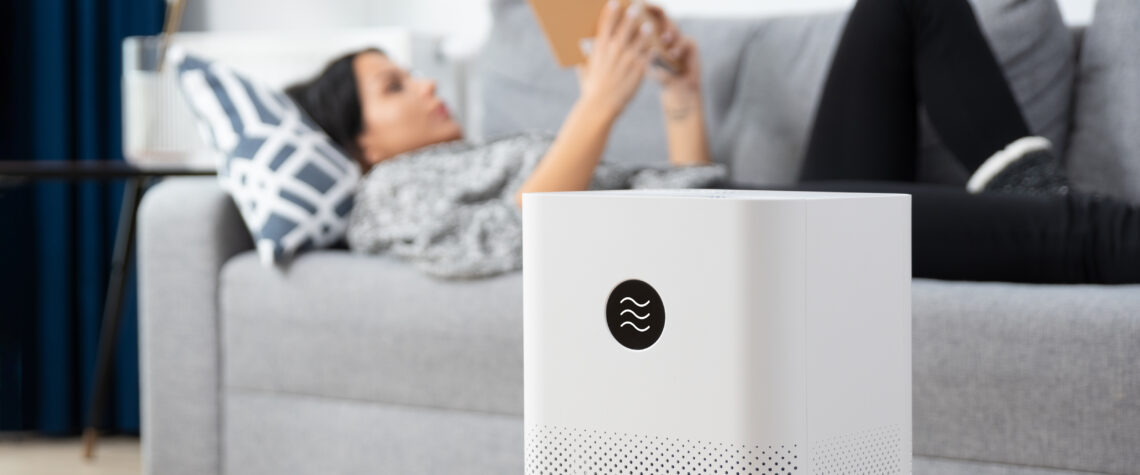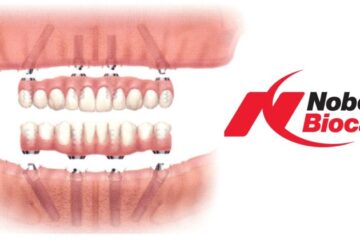If you’re feeling the effects of spring allergies or want to ensure your family breathes healthy air, air purifiers may seem like the perfect solution. But are portable air purifiers effective? We took a look at the science behind air purifiers to see if they’re worth the investment and how to get the most out of your air purifier by putting it in the right spot.
Do Air Purifiers Really Work?
There’s little scientific evidence that air purifiers make a substantial positive impact on your home’s air quality. The EPA states that several studies have demonstrated improved indoor air quality in lab testing. However, clinical testing is not ideal for testing the real-world impact.
The effectiveness of air purifiers depends on factors such as:
- The type of filter used in the device
- How often the filter is replaced
- The size of the room or space where the air purifier is placed
- The size of the air purifier
- How often the air purifier is used
- The level of indoor air contaminants produced in the home
Do I Need an Air Purifier?
There’s no doubt that the idea of a portable air purifier is attractive to most homeowners. Indoor air quality can be two to five times worse than outdoor air. Our indoor lifestyles compound the exposure to harmful airborne irritants and indoor pollutants. Americans spend roughly 90% of their time indoors, making air quality in homes and places of work a significant influence on health.
However, if you’re wondering if air purifiers are worth it for allergies and general wellness, it’s worth noting that studies are not conclusive. Some studies have found that air purifiers that use HEPA filters offer slight improvements in allergy and asthma symptoms. However, those improvements were so minor that they may not be noticeable to most individuals.
To learn more about the effects of indoor air quality on your health, talk to an HVAC professional. Our friends at Aire Serv, a Neighborly company, offer expert indoor air quality testing to help keep your family safe.
You Need to Know How Air Purifiers Work to Use Them Effectively
Air purifiers combine airflow and filtration to remove airborne particles. The devices use a fan to pull air in and force it through a filter. This filter removes dust, dander, and other impurities. The air is then pushed back into the room.
The effectiveness of the air purifier relies heavily on the filter. Use a device with a HEPA filter and replace the filter often to maximize the benefits of your air purifier.
Where to Place Your Air Purifier
Finding the right spot for your air purifier also makes a big difference in how well it works. Some manufacturers include specific placement instructions with their products that detail the precise location each model was designed for, such as mounted on a wall or placed on the floor.
If your air purifier didn’t come with instructions, here are four tips for finding an optimal place for your air purifier:
- Place your air purifier close to indoor pollution sources. Those sources might be a dog bed, a wood fireplace, or a room where you experience more pronounced asthma and allergy symptoms.
- Make the most of indoor airflow. Placing your air purifier near windows or doors can help increase the rate at which air filters through the device—the more air filtered, the lower the risk of indoor contamination.
- Place your air purifier off the ground. We recommend placing yours on a stool or end table so it sits three to five feet off the ground, as there are fewer obstructions (e.g., furniture, appliances) at that height. Additionally, this position helps an air purifier capture the warm air rising in your home.
- Nobody puts an air purifier in the corner. Corners block airflow on at least two sides, preventing an air purifier from cycling an optimal amount of air.
Tips for Improving Indoor Air Quality
Perhaps the most important way to ensure excellent indoor air quality is to keep a clean house. Cleaning regularly reduces the amount of dust and dander in your home, especially if you’re doing these things:
- Vacuum once or twice per week. Use a vacuum with a HEPA filter to capture dust and other irritants. Additionally, consider choosing hardwood floors instead of carpets and rugs, which can house more dust and allergens and need more frequent cleaning.
- Wash your bedding often. Consider using warm or hot water to clean bedding, towels, and clothing if you have indoor or outdoor allergies.
- Dust and remove clutter. Clear and dust surfaces in your home regularly.
Take a Deep Breath and Call Molly Maid for a Deep Clean
So, are air purifiers worth it? Only if you’re addressing other factors that might reduce airborne irritants as well. Think of an air purifier as part of a holistic approach to healthy indoor air quality. In addition to finding an air purifier with a HEPA filter, make sure regular cleaning plays a central role in tackling indoor pollution
Call the experts at Molly Maid today to schedule an appointment at 615-794-0200 or 615-603-3766,today https://www.mollymaid.com/s-davidson-williamson-maury-counties/about-us/contact-us/ We’re Maid for This!
A Clean You Can Trust®
Ashley Farrar
Ms. Molly Foundation
Molly Maid is proud to fund and support the Ms. Molly Foundation, which supports domestic violence agencies and shelters in local communities. We’re proud to have raised over $3 million dollars since 1996.














